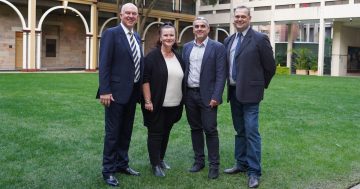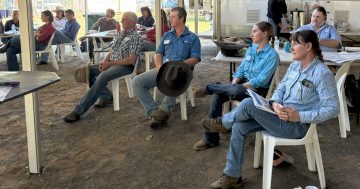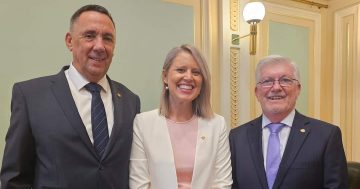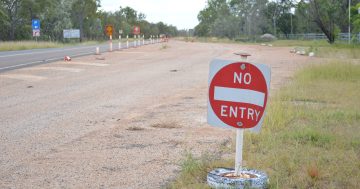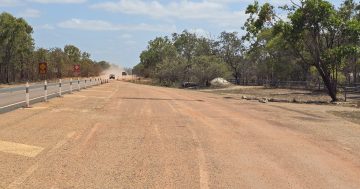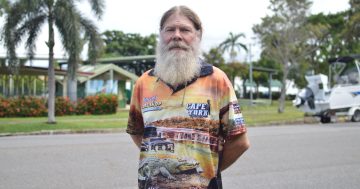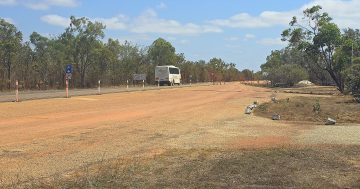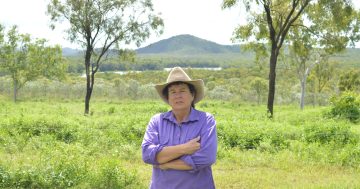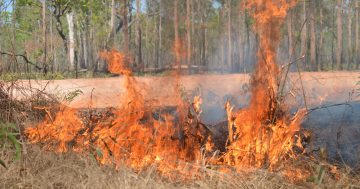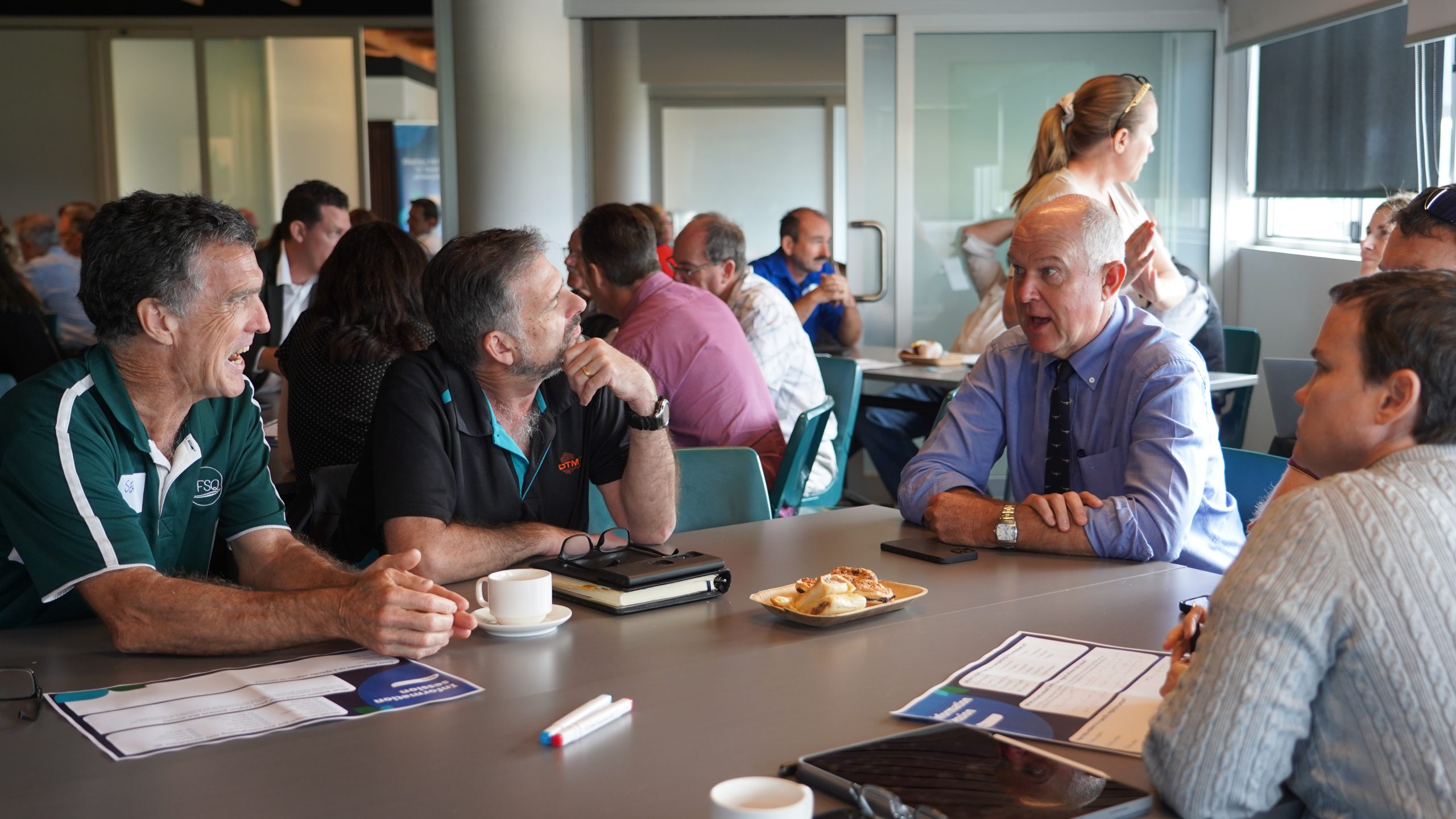
Minister for Primary Industries Tony Perrett (right) is calling on Cape York primary producers to have their say on the Primary Industries Prosper 2050 plan. Photo: Supplied.
Cape York primary producers will have their say on a draft blueprint set to “drive future investment, create jobs, and unlock opportunities for agribusiness” for the next 25 years in Weipa this month.
Primary Industries Prosper 2050, which was formulated with around 250 industry representatives at the Queensland Primary Industries Forum in Brisbane earlier this year, is now calling for public feedback as it tours the state.
On 30 May, local stakeholders are invited to ensure their voices are heard at the consultation session, which will be held at Weipa Motel and Resort from 11am.
Lakeland grazier Joy Marriott said she wanted to see the bureaucracy around multiple land use be eased, so landholders could make further use of what they have.
“Regardless of the tenure, we want to see more land use, and ease it up a bit, because even though I’m on a freehold block, if I want to go into any other industry, I’ve got to do a material change of use (MCU),” she said.
“You might have a marvellous idea and that’s all good, but you don’t actually benefit if it’s really prohibitive to have an alternative thing.
“We understand the environmental [aspect], we don’t want to trash the environment, but at the end of the day, people on the land need to be able to use their land.”
Ms Marriott said when she opened a campground on her property, she spent “half a million dollars, at least” on the MCU.
She criticised the government red tape that made it almost impossible for small businesses to survive, including after Tropical Cyclone Jasper, when residents set up small campsites through Hipcamp but were subsequently shut down.
“They’ve just been decimated, and it’s a little bit of cash, you know, a little bit of income,” she said.
“They want to jump on us, and then you get the big properties that are owned by the carbon people, they don’t have to do a material change of use to start getting carbon credits, and they could be making millions of dollars, but us, if we want to have two people camping on our joint, we’ve got to do a material change of use and spend half a million dollars; it’s ridiculous.”
“It’s hard enough doing business in Cape York, anyway, because of the remote location and the wet season.”
Minister for Primary Industries Tony Perrett said it was important voices from all communities and industry sectors were heard to ensure a future where Queensland primary industries could “thrive and prosper”.
“We want every industry to have their say, including those that operate out of the more remote parts of Queensland, who often have to go above and beyond to have their voice and view heard,” he said.
“We need to work with the industry to return the sector to full profitability after decades of neglect under various Labor governments that took advantage of our food, fibre, foliage and especially fishing industries.”
Ms Marriott said biosecurity on the Cape was also a topic she wanted to see prioritised in the plan after the controversial mid-2023 closure of the Cape York Biosecurity Centre.
“They’ve closed that biosecurity thing down at Coen, which leaves us very vulnerable; there’s a very leaky boundary going up to Indonesia and [Papua] New Guinea,” she said.
“Foot-and-mouth [disease] is in Indonesia, and it could come down through there, and we’re very aware that they’re going to draw a line, and that’s going to be called a buffer zone, and they will kill all our animals.
“Apart from the financial cost of it, most cattle people like their cattle; we’ve been breeding them for generations, and that’s the last thing we want to see.”
Stakeholders who cannot attend the in-person consultation can join the conversation online, with both the public and online consultation closing at 5pm on 9 June.


